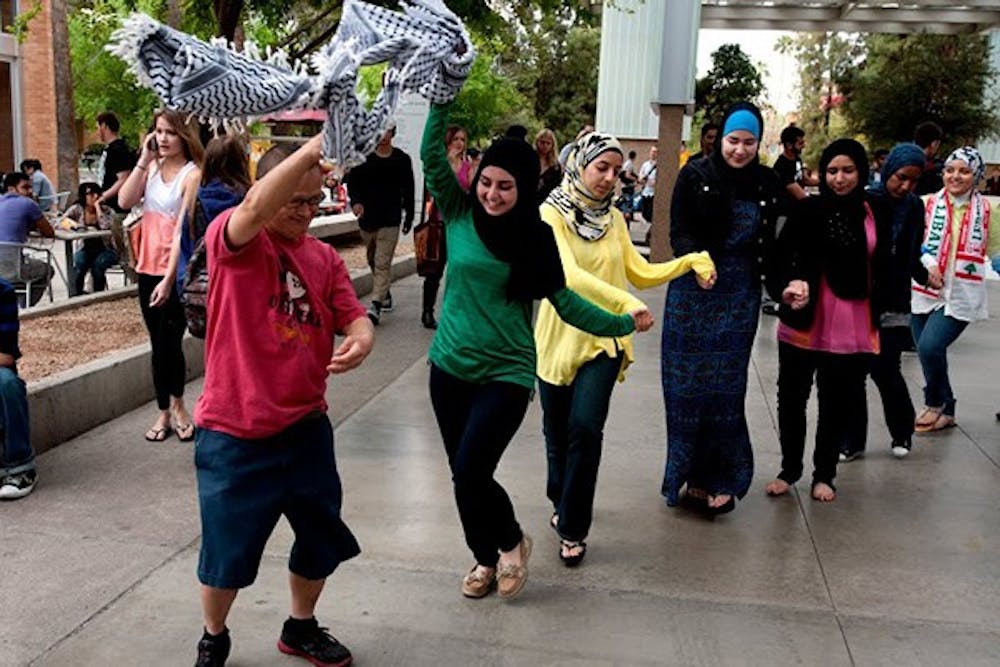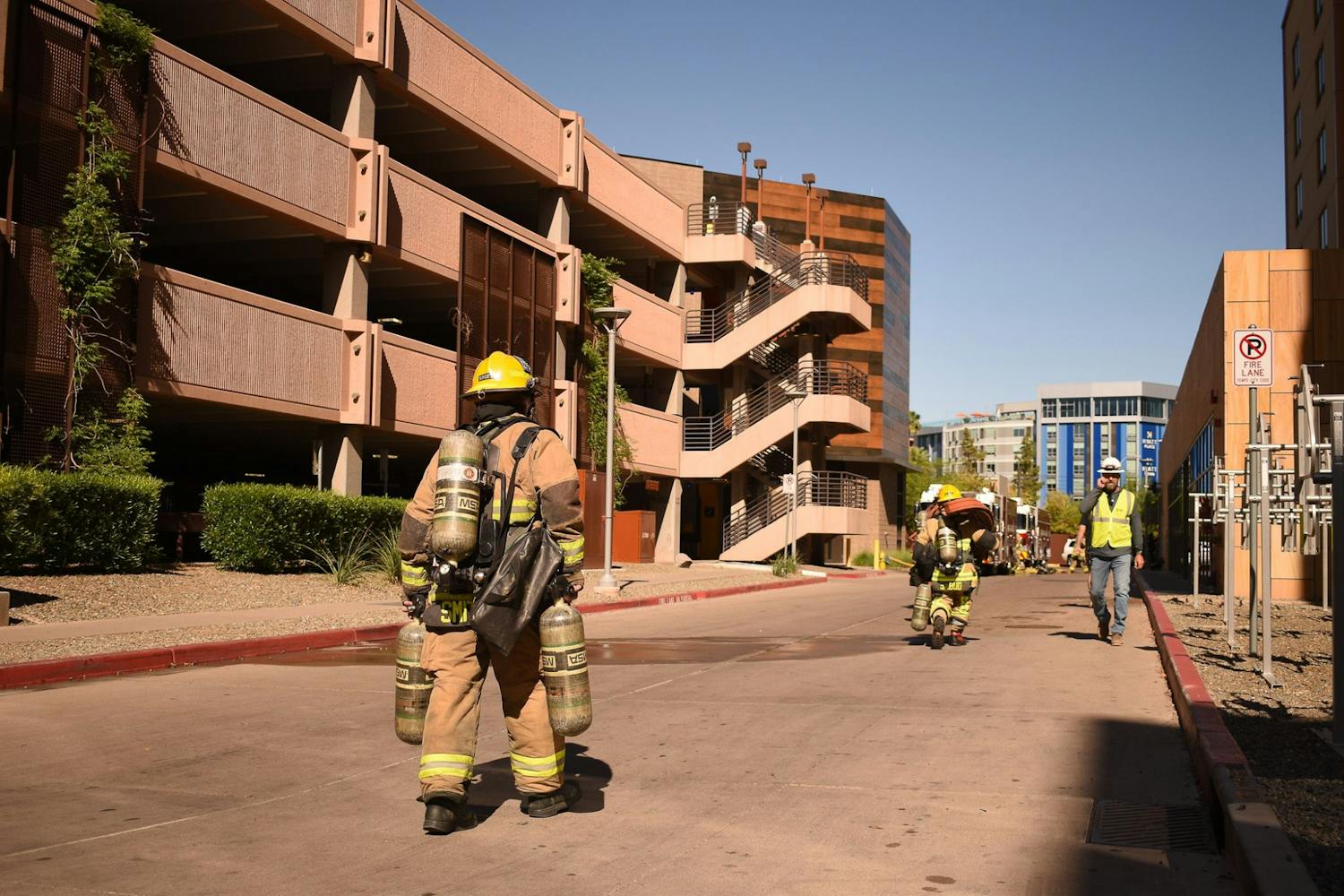 Nonprofit leadership junior Noor Halloum and friends partake in a dabka dance outside the Memorial Union. The dance is commonly seen at social gatherings in Palestine. Students for Justice in Palestine hosted the event on March 6. (Photo by Mario Mendez)
Nonprofit leadership junior Noor Halloum and friends partake in a dabka dance outside the Memorial Union. The dance is commonly seen at social gatherings in Palestine. Students for Justice in Palestine hosted the event on March 6. (Photo by Mario Mendez)
As part of a week-long string of events protesting Israeli treatment of Palestinians, members of Students for Justice in Palestine spontaneously broke into a dabke dance Thursday on the Tempe campus.
The ASU chapter of SJP is made up of students, faculty and community members who promote justice and human rights for the Palestinian people. Every semester, the group hosts events to educate the community on injustices happening to the Palestinian people.
The dabke dance appeared spontaneously at the Memorial Union north stage. Spectators were encouraged to join in. SJP members and other students held hands to form a chain and dance to traditional Palestinian music.
Chemical engineering junior Ibrahim Halloum, president of SJP, said dabke is a traditional dance Palestinians perform on many happy occasions.
“In the plight for justice and to counter the hegemonistic ambitions of Israel, dabke has become one of many ways to non-violently resist the illegal occupation,” he said.
Dabke is a line dance that is normally performed in joyous occasions such as weddings. The line forms from right to left and there is a leader that leads the line. Dancers alternate between facing the audience and other dancers.
The dance originated in Levant and amongst Palestinians, there are six main types of dabke. Each type of dabke has its own corresponding set of songs.
Holloum said SJP did this dance as a flash mob to show that Palestinian culture is alive and well. During the performance, SJP members held up a sign that read, “ASU students oppose whitewashing Israeli crimes.”
Nonprofit leadership junior Noor Halloum said the term whitewashing is used to describe Israeli actions as seeming less than they actually are.
“Making it seem normal when it really isn’t,” she said.
 Nonprofit leadership junior Noor Halloum and alumna Kailey Brasse partake in a dance traditional to Palestine. Students for Justice in Palestine hosted the event in front of the Memorial Union on March 6. (Photo by Mario Mendez)
Nonprofit leadership junior Noor Halloum and alumna Kailey Brasse partake in a dance traditional to Palestine. Students for Justice in Palestine hosted the event in front of the Memorial Union on March 6. (Photo by Mario Mendez)
This week SJP, has also hosted speakers, screenings and a wall representing the wall that divides the West Bank and the Gaza strip.
The wall was displayed on Monday on the Tempe campus and presented statistics and images depicting graphic scenes meant to educate passers-by about the Israeli-Palestinian conflict.
On Wednesday, SJP invited Haaretz reporter David Sheen to talk about African asylum seekers in Israel. Sheen is a journalist and filmmaker who has been covering the Israeli treatment of African refugees for Haaretz.
SJP wll host a screening Thursday night of the documentary "5 Broken Cameras" at the MU north stage. The documentary is a Palestinian-made film depicting a firsthand account of non-violent resistance of Bil’in, a West Bank village threatened by incoming Israeli settlements. The documentary was nominated for an Academy Award.
ASU alumna Kaylea Brase said she found out about SJP from a friend. After spending time in Jordan and meeting some of the Palestinian refugees, she wanted to learn more.
“It’s good to know what’s going on, and I’ve learned more about the atrocities happening in Israel,” she said.
Sun Devils for Israel did not return immediate calls for comment.
Reach the reporter at kgrega@asu.edu or follow her on twitter @kelciegrega




